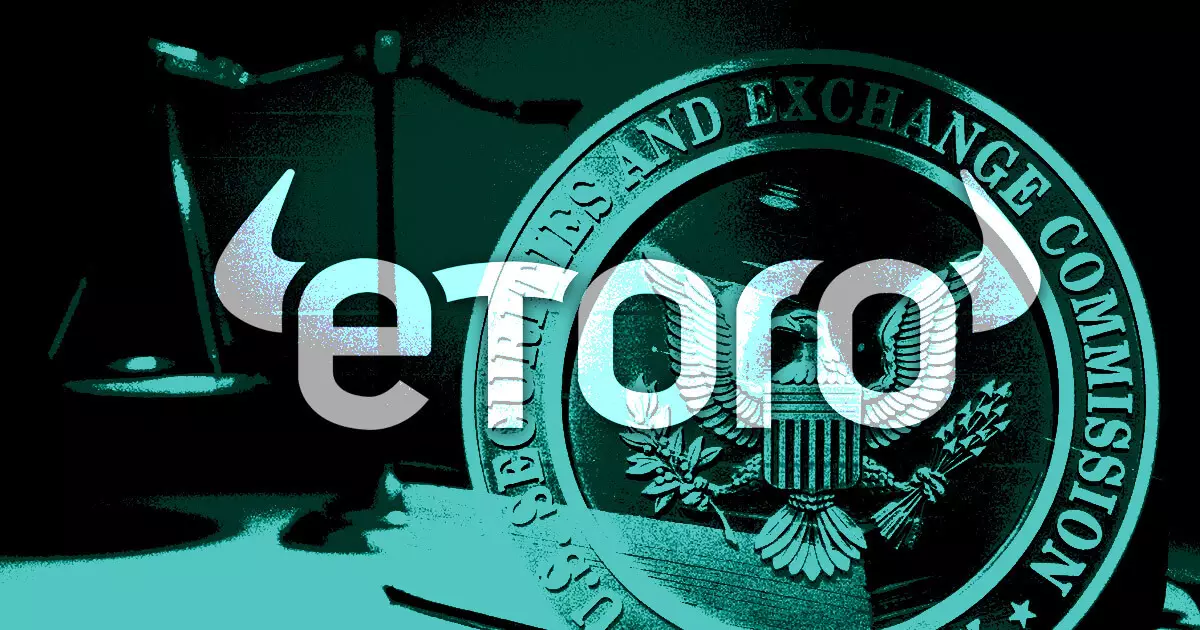eToro, a prominent trading platform, has announced significant changes to its operations in the wake of a $1.5 million settlement with the U.S. Securities and Exchange Commission (SEC). This decision, which affects the availability of digital assets for U.S. customers, stems from the SEC’s investigation that uncovered eToro’s offering of crypto assets classified as securities without adhering to federal regulations since 2020. This situation underscores the regulatory landscape that crypto companies are increasingly navigating, where compliance and the avoidance of legal pitfalls are paramount.
While eToro’s settlement does not signify an admission of guilt, it reveals the platform’s effort to align with federal regulations. With the restriction of its crypto offerings to a limited number of assets, such as Bitcoin, Bitcoin Cash, and Ethereum, the company aims to reshape its business model in accordance with SEC guidelines. The gravity of the situation is amplified by remarks from Gurbir S. Grewal, the SEC’s Director of Enforcement, who asserts that this action enhances investor protection and sends a clear message to other crypto intermediaries about the importance of compliance.
The Broader Crypto Landscape
The fallout from eToro’s regulatory challenges fits within a broader narrative of crackdowns on various cryptocurrencies and exchanges by the SEC. The agency’s scrutiny has extended to major players like Binance, Kraken, and Coinbase, each facing regulatory challenges that have forced them to reconsider their operations. This ongoing regulatory response signals a shift in how cryptocurrencies will be traded and managed in the United States, establishing more defined boundaries for trades involving digital assets classified as securities.
The implications for eToro are multi-faceted. The platform will liquidate all unauthorized digital assets within 180 days, a move that impacts how investors will engage with products on the platform moving forward. This decision, while perhaps painful in the short term, positions eToro to prove its commitment to regulatory compliance. Such steps may ultimately foster trust and legitimacy within an industry grappling with perceptions of volatility and a lack of regulatory oversight.
Yoni Assia, eToro’s co-founder and CEO, has communicated a forward-looking vision that emphasizes a commitment to regulatory compliance. Assia’s assertion that “it is important for us to be compliant” speaks to a growing realization among crypto companies that adaptability is crucial for survival and growth within heavily regulated environments. eToro is now focusing on aligning its practices with existing frameworks in the UK and Europe, anticipating similar regulatory structures in the U.S. soon.
Furthermore, eToro is offering its users options regarding their existing crypto positions. Users can either close positions or transfer assets to a designated eToro wallet before a specified deadline. This clarity on user options is critical, as it mitigates concerns regarding unexpected liquidations and maintains user trust in the platform during a tumultuous time.
The recent developments in eToro’s operations reflect broader trends in the cryptocurrency market as firms grapple with regulatory realities. As the SEC continues to clamp down on non-compliant entities, eToro’s strategic choice to comply may pave the way for its future operations while offering a blueprint for others in the industry. It is a reminder that in a rapidly evolving marketplace, adherence to regulatory frameworks can enhance not only investor trust but also the long-term viability of the platforms that seek to serve them.















